Overview
The Nokia 5110 LCD module is very popular among electronics hobbyists. This LCD module use the Phillip PCD8544 LCD controller/driver with a display data RAM of 48x84 bit. It can operates between 2.7V and 5.0V DC. Its SPI interface could operate up to 4MBits/s.
 |
| Sample Program using PIC16F887 |
Its slave SPI interface is very easy to control using a dedicated hardware SPI module or even a software SPI bit-banging method.
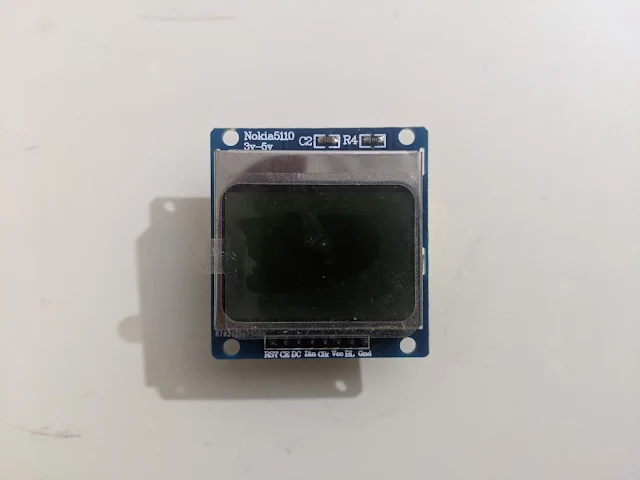 |
| Nokia 5110 LCD Module |
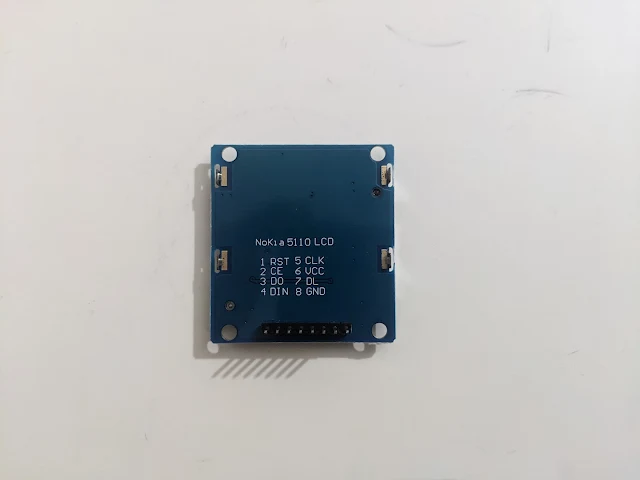 |
| Nokia 5110 LCD Module Back Side |
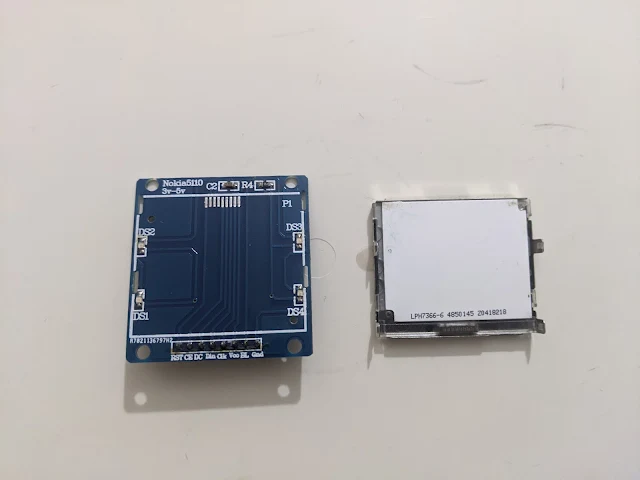 |
| Panel LPH7366 |
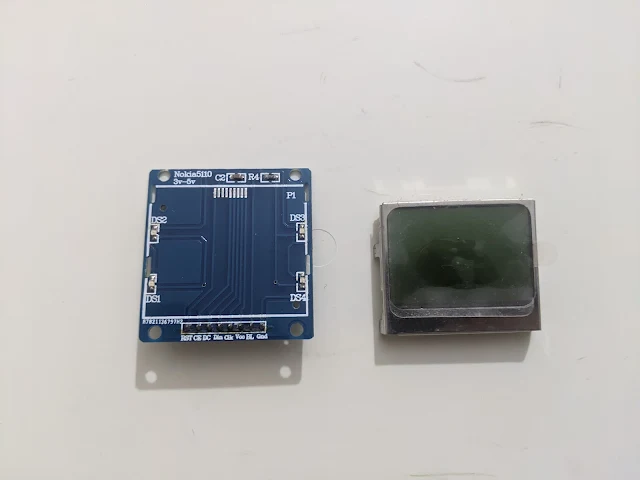 |
| Panel LPH7366 |
Its operating voltage is between +3.3V and +5.0V DC, suitable for most of DIY hobbyist electronics projects.. Its 8 pins are,
- RST : Reset (Active Low)
- CE : Chip Enable (Active Low)
- DC : Data(1) or Command(0)
- DIN : Data In
- CLK : Clock In
- VCC : Positive Supply Voltage
- BL : Back Light
- GND : Ground
We can write the data to the display RAM using a vertical or horizontal addressing mode. Using the horizontal addressing mode is very common.
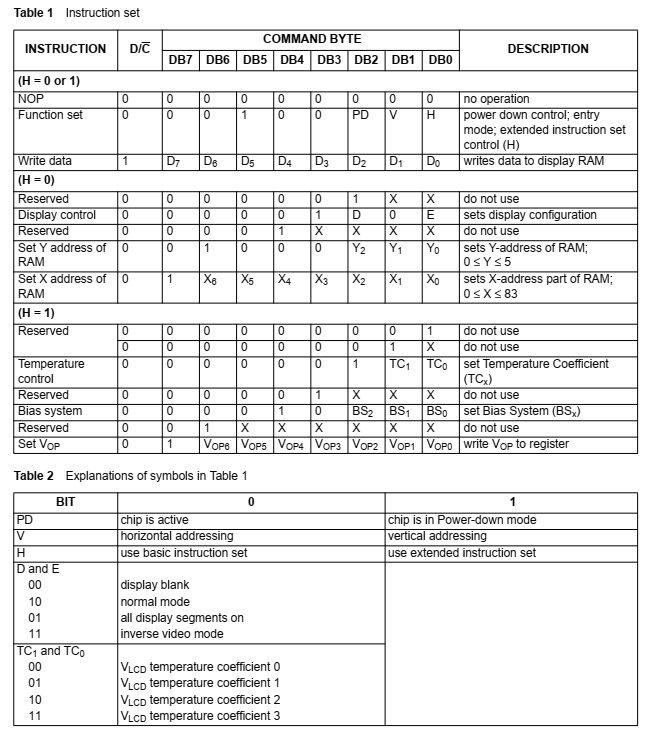 |
| Instruction Set |
The controller accepts command or data via DC pin (logic 1 for data and logic 0 for command).
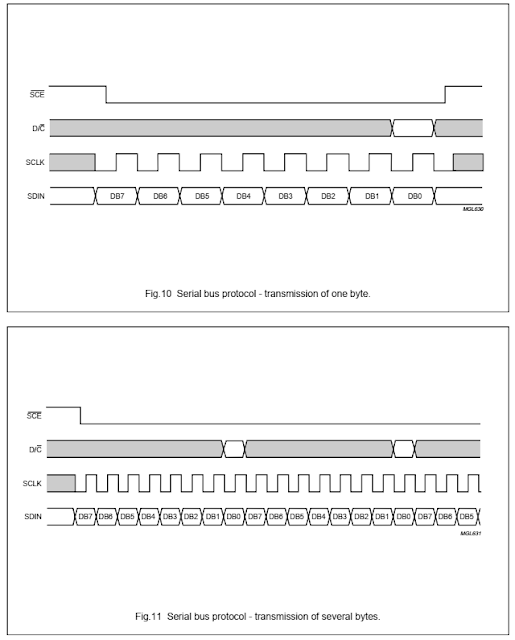 |
| Serial Protocol |
The microprocessor can transfer the data to this chip using a single byte or multiple bytes transmission mode.
PIC16F887 SPI Interfacing using XC8 C compiler
Using the SPI module of PIC16F887 is very easy. It allow a high speed transmission of data to the LCD without interrupting the micro-controller program.
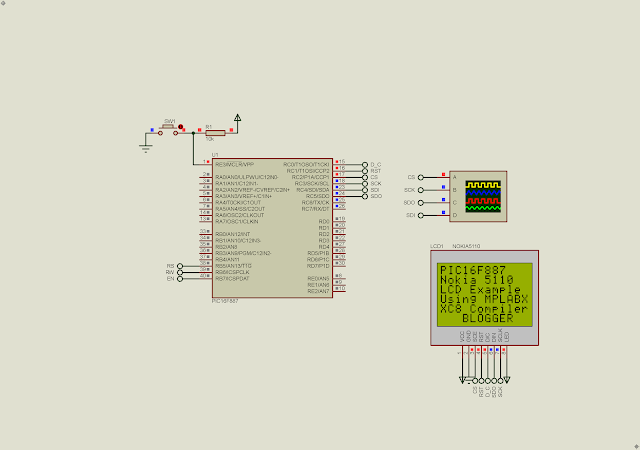 |
| Simulating program in Proteus |
In this example, the micro-controller send graphic data and text to the LCD repeatedly.
 |
| Running Program on PIC16F887 Prototype Board |
Source Code:
I make an PCD8544 driver included in this project. It based on Arduino Playground example.
The PCD8544.h header file:
The PCD8544.c source file:
Click here to download its source file.
Excellent blog post! The content is incredibly insightful and well-articulated, making complex ideas accessible and engaging. The thorough research and clear presentation are truly commendable. This piece is a valuable resource for anyone interested in the topic. Kudos to the author for their outstanding work! I look forward to more insightful and well-crafted articles in the future. Keep it up!
ReplyDeleteHalltronics
Thanks for the blog! Create led
ReplyDeleteHaier HRF-368 IF Series Inverter Refrigerator
ReplyDeleteHaier HRF-368 IA Series Inverter Refrigerator – 13 CFT
For smaller spaces or budget-conscious buyers, the Haier HRF-368 IA Series delivers premium features in a compact design. its perfect for Small families or individuals seeking advanced cooling in a compact size.
Nice Blog. Thanks for sharing
ReplyDeleteUnderstanding the Importance of Printed Circuit Boards and the Design Process
The Difference Between Hardware and Firmware
Understanding Mixed-Signal ASIC Design and Its Applications in Various Sectors
Why ASICs Are the Best Choice for Your Next IoT Product
Understanding the Chip Design Process
Exceptional clarity and precision! Perfect for detailed visual applications where quality and readability truly matter. Definitely a great addition to any modern electronic setup
ReplyDeletegrafik lcd
What an insightful and well-articulated post! I truly appreciate the depth of information and the clarity with which it's presented. It’s evident that a lot of research and effort went into crafting this content. Looking forward to reading more from you!
ReplyDeleteHalltronics
Halltronics
This display offers sharp visuals and outstanding clarity—perfect for precision-driven projects and smart tech applications.
ReplyDeletegrafik lcd